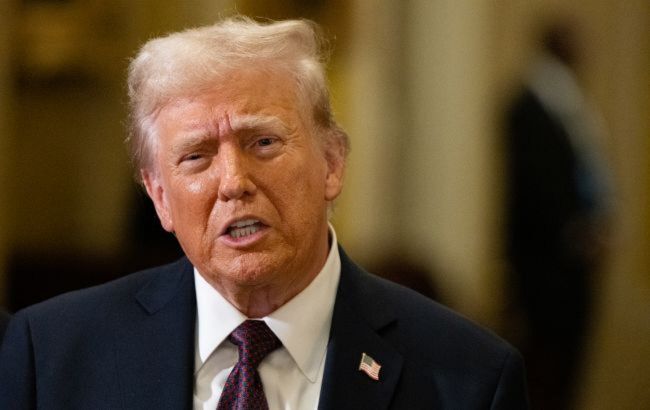Trump announces plan for tariff-free digital economy
 Photo: Donald Trump, President of the United States (Getty Images)
Photo: Donald Trump, President of the United States (Getty Images)
The administration of Donald Trump is promoting the creation of a global digital economy free of tariffs and taxes, having secured assurances from Southeast Asian nations that they will not impose restrictions on US technology companies, Bloomberg reports.
The Donald Trump administration is advancing plans to establish a global digital economy led by the United States, free from tariffs and taxes on internet services. According to Bloomberg, the White House has already secured commitments from Malaysia, Cambodia, and Thailand not to impose digital taxes or restrict American providers of e-commerce, cloud computing, or social media.
These agreements reinforce the US position as a global leader in digital trade, a sector increasingly central to Washington’s geo-economic competition with Beijing. In parallel, Trump continues to promote high tariffs on physical goods from Asia to narrow the US trade deficit.
Global internet without tariffs
Under the new trade agreements, Malaysia, Cambodia, and Thailand agreed to support the World Trade Organization’s moratorium on customs duties for electronic transmissions, a measure renewed biennially since 1998. Washington seeks to make the moratorium permanent, preventing any future tariffs on digital goods and services.
"The Trump administration believes that our deficit in trade in goods has been unfairly imposed, but that our surplus in trade in services has been fairly earned" and wants to “maintain our services surplus, while reducing our goods deficit," said Anupam Chander, a professor of law and technology at Georgetown Law in Washington. "I could understand why other countries would feel that this is itself unfair."
Record growth in digital trade
According to WTO and UN estimates, global exports of digital services exceeded $4.7 trillion in 2024, up 10% year-on-year. The sector is growing twice as fast as overall global trade in goods and services, becoming a key driver of economic development.
Artificial intelligence is accelerating this growth but also raising concerns over national security, data protection, and digital sovereignty. Many countries are losing tariff revenues as products like books and films shift to digital formats.
US pushback against digital protectionism
Seeking to preserve the dominance of American tech giants, Google, Meta, and Amazon, Trump opposes the protectionist measures introduced by some countries. European nations such as France have already imposed digital services taxes, straining relations with Washington.
The new agreements with Southeast Asian partners are intended to set a global precedent, while the White House continues to pressure India and Brazil, which traditionally advocate for the right to levy digital taxes to boost public revenues.
Digital geopolitics
Experts see Trump’s digital agenda as both an economic and strategic tool. As China expands its influence across Africa and South Asia, Washington aims to entrench a “digital order” defined by US-led rules.
"The commitments in the US deals to facilitate the free flow of data are absolutely welcome – especially when set against the trend for localization requirements that we’ve seen in recent years," said Andrew Wilson, deputy secretary-general for policy at the International Chamber of Commerce. "While country-by-country progress is valuable, the ultimate goal should be to anchor these norms in a new international deal."
European divide and uncertainty over WTO moratorium
Meanwhile, Europe remains divided. Brussels calls for stronger controls over data privacy and antitrust enforcement, while Washington views such policies as excessive interference in business. Despite the new deals, experts doubt that the US can make the WTO moratorium permanent.
Martina Ferracane, an associate professor of international digital trade at Teesside University in the UK, said another temporary extension is likelier than a permanent one because the US administration has "weakened its credibility" to lead a global consensus on the issue.
Trump’s approach to digital trade underscores a broader attempt to restructure global commerce on US terms, lowering tariffs on services while raising duties on goods. The White House seeks to protect American manufacturers while preserving the global dominance of US tech corporations.

